Current projects
EASE: Educational AI Stakeholder Ethics (2025–2027)
In this project, funded by the UIUC Campus Research Board, we are investigating the factors that explain why people have different perceptions about sharing and using data in AI-driven educational technology contexts. For instance, how do students’ and teachers’ perspectives differ, and why? We develop survey measures to study a two-dimensional model of potential influences: (1) impact severity, or how much the data are likely to have an impact on educational experiences and outcomes, and (2) stakeholder exposure to impact, or how much data-driven/AI-driven decisions will directly impact the person in question versus someone else.
Examining Elementary Mathematics Teachers’ Behaviors and Learning with an Online Professional Development Platform (2023-2026)

This NSF-funded project consists of understanding the different purposes teachers have when interacting with an online teacher learning platform (the Virtual Learning Community), and, subsequently, how to customize the learning experiences available to teachers based on their various purposes and patterns of usage. In particular, we employ a mix of machine learning for clustering, surveys, and interviews to discover characteristic “profiles” of teachers who use the platform for different purposes. Subsequently, we use experimental methods to compare teachers’ outcomes as they relate to these profiles.
FairFL-MC: A Metacognitive Calibration Intervention Powered by Fair and Private Machine Learning (2022-2026)
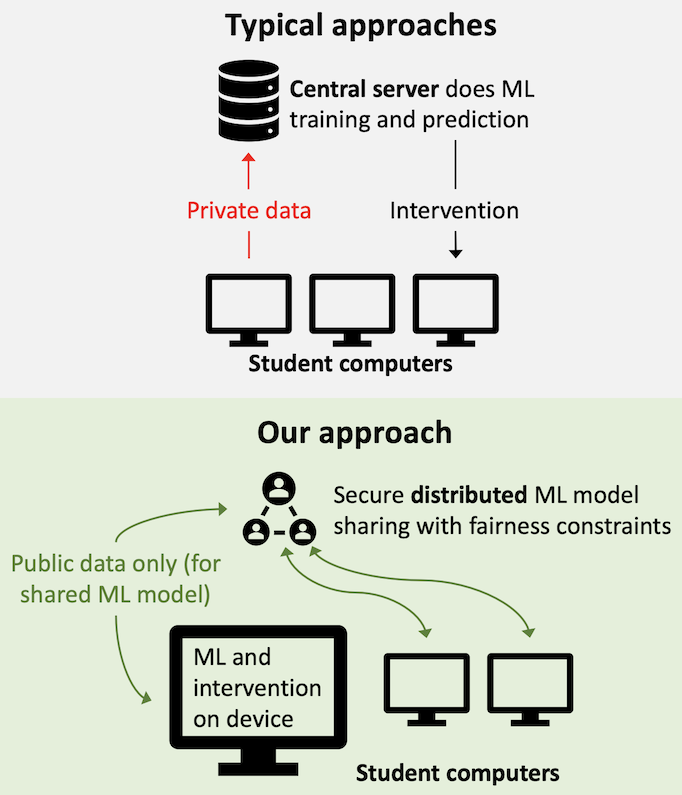
This NSF-funded project advances AI methods for fair and private machine learning in the context of educational psychology research on metacognition. Accurately assessing how well you know a topic (i.e., a metacognitive judgment) is essential for knowing how much effort to spend studying that topic. However, metacognitive judgments are very difficult, leading to low accuracy, or low metacognitive calibration. In this project, we design an AI-driven method to teach metacognitive calibration to students and test it in a randomized controlled trial. The AI aspects of the project examine methods for training machine learning models that protect student privacy using a method called federated learning, in which a model is assembled in a distributed fashion from pieces of a model trained on students’ own computers. Furthermore, we examine ways to improve AI fairness in this privacy-focused situation where information about students cannot be directly used to audit or adjust models.
Towards a Wearable Alcohol Biosensor: Examining the Accuracy of BAC Estimates from New-Generation Transdermal Technology using Large-Scale Human Testing and Machine Learning Algorithms (2021–2026)
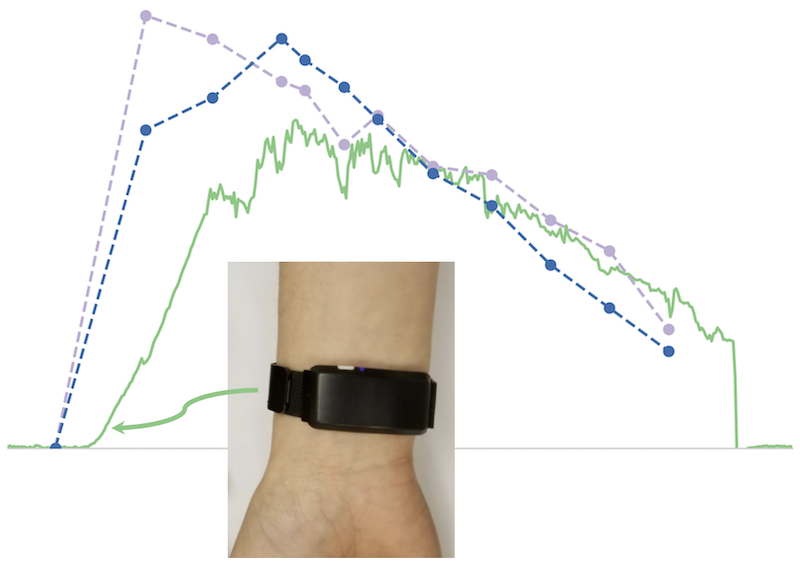
This NIH-funded project focuses on machine learning approaches for translating transdermal alcohol content (i.e., alcohol measured from a person’s skin) into blood alcohol content (“BAC”). Modern transdermal sensors are small, easy to use, and measure transdermal alcohol content frequently, but lag behind typical measures of BAC (especially breathalyzers) in terms of accuracy. We address the accuracy problem in this project by leveraging the high frequency of transdermal alcohol readings to construct time series data suitable for machine learning methods that can predict the current BAC more accurately than the individual transdermal readings do. We train and apply these models in both laboratory and in-the-wild contexts with the goal of providing accurate and reliable inebriation measurements that can be used as part of treatment programs for people with alcohol use disorder.
We work with researchers from the Alcohol Research Lab at UIUC on this project.
Past projects
Exploring Algorithmic Fairness and Potential Bias in K-12 Mathematics Adaptive Learning (2020–2025)

This NSF-funded project explores algorithmic bias in widely-used educational software. The unique focus of this project is that we use open-ended surveys and interviews with students and their teachers to measure student identity in the classroom at a very fine-grained level. For example, students might identify themselves by race, ethnicity, language, culture, religion, or many other dimensions that could related to how they interact with each other in the classroom and with the educational software they use. We then apply various methods to measure the bias of algorithms that are used to do things like automatically select which problem a student should work on next. Ultimately, we will explore bias-reduction methods based on these findings to see how much fairer algorithms can improve learning for students from all different backgrounds.
This is a collaborative project with Carnegie Learning, Inc. and the Penn Center for Learning Analytics.
Advancing Computational Grounded Theory for Audiovisual Data from STEM Classrooms (2019–2024)
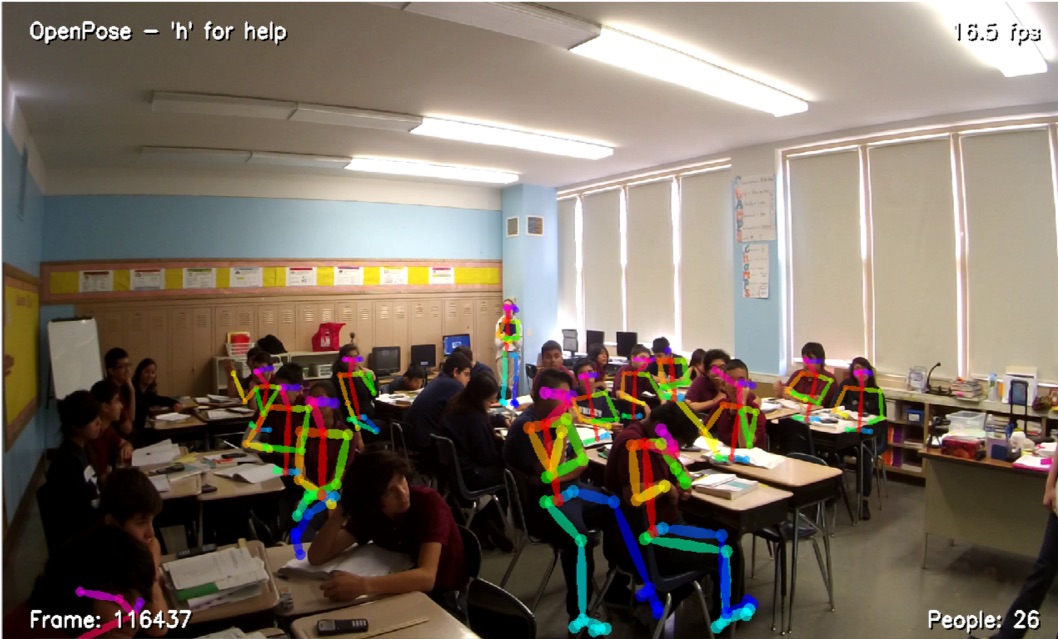
In this NSF-funded project, we are exploring mathematics classroom video and audio recordings with two approaches. In one approach we use machine learning methods to automatically extract keypoints (positions of parts of the body) from video and features from audio. We are using high-level summaries of these features to perform data-driven discovery of activities, instructional formats, and events in classrooms. In the other approach, expert annotators analyze the datasets with similar discovery goals. We then examine the convergence and validity of these two approaches, focusing especially on how computational methods can be developed to assist and expand on the abilities of researcher annotators.
Assessing Eye Movement Scanpaths in Source Code Comprehension (2020–2022)
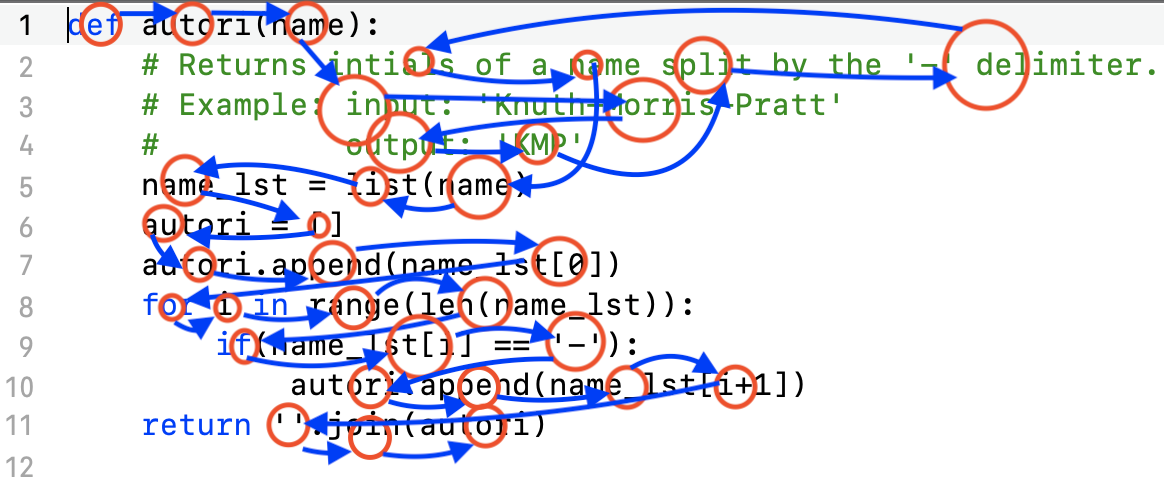
We are exploring how programmers read Python source code, especially when they are looking for errors. For example, how much do programmers need to look back and forth through code to find different kinds of bugs? And what are the characteristic gaze patterns of programmers who are highly skilled at detecting bugs versus those who are not?
This project is funded by Sandia National Labs through the Academic Alliance Program (SAND2021-7588 O), and we work with researchers at Sandia and the UIUC Educational Psychology Psycholinguistics Lab on this project.
Underrepresented Student Learning in Online Introductory STEM College Courses (2018–2022)
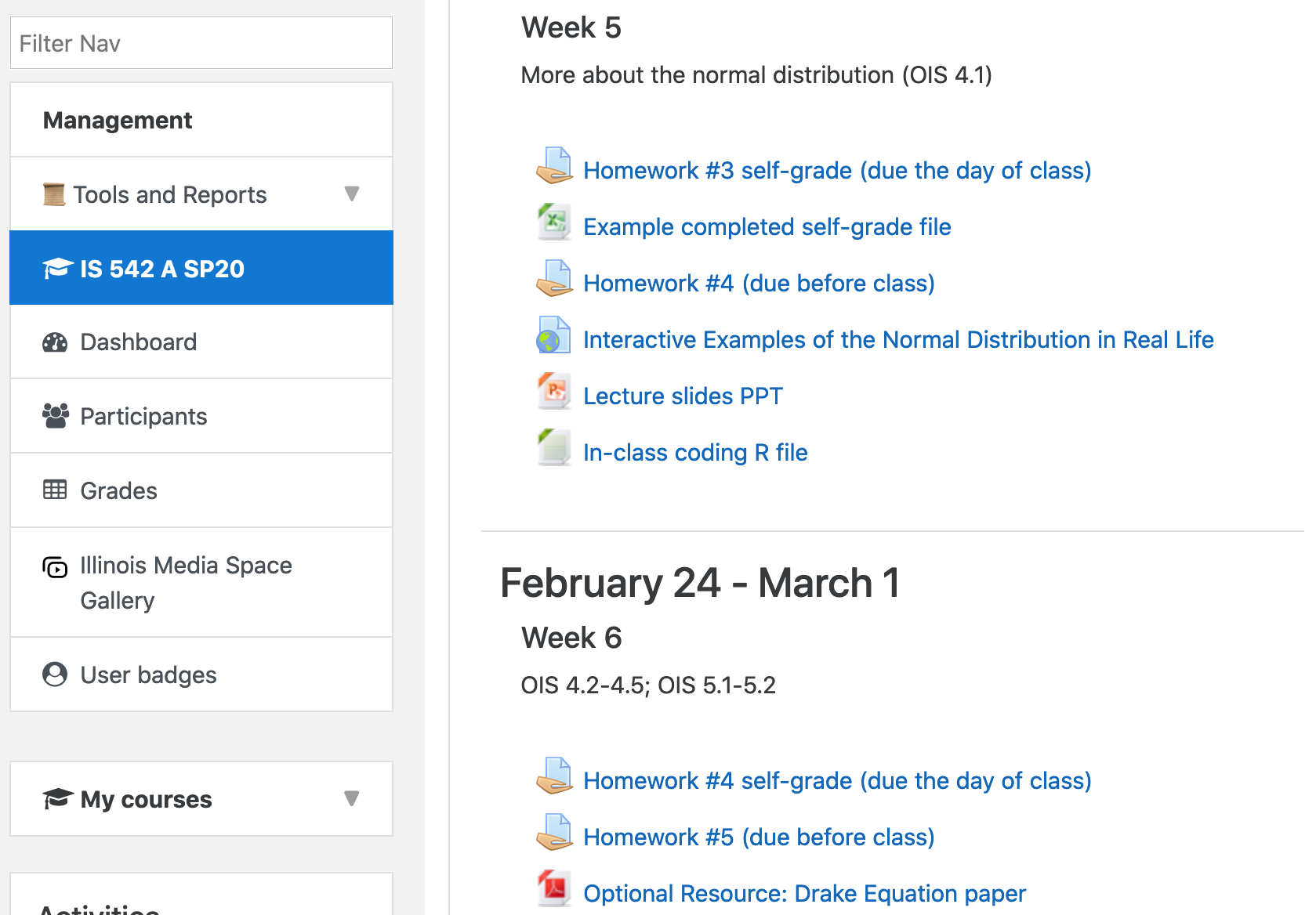
This IES-funded project focuses on discovering how students from demographic groups that are traditionally underrepresented in STEM (Science, Technology, Engineering, and Math) differ from their peers in terms of how they interact with online college STEM courses. For example, we are investigating differences in usage patterns for various course features (asking questions in discussion forums, retrying assignments, etc.) to determine which correlate with success, how usage differs across demographics, and how these differ across courses. Ultimately, this exploratory project will inform future work focused on experimentally testing hypotheses derived from observations in these online courses.
This project is in conjunction with the ILEARN group of researchers at UIUC.
Supporting Self-regulated Learning in Online Education via Automatically Personalized Interventions (2020–2021)
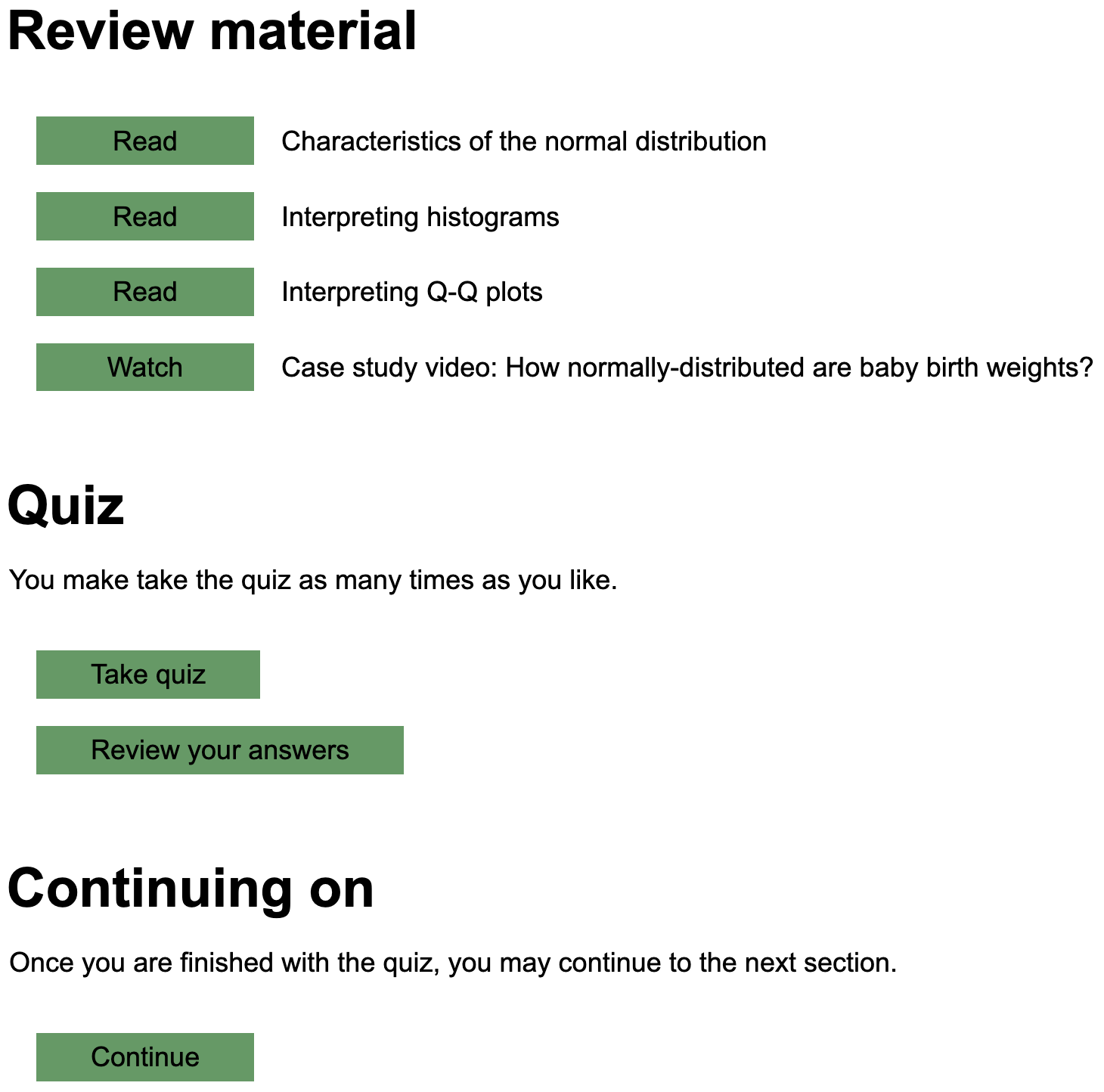
This is a one-year pilot data collection project funded by the Technology Innovation in Educational Research and Design (TIER-ED) initiative. The goal of this pilot is to demonstrate the feasibility of a new method for performing self-regulated learning (SRL) interventions. Specifically, SRL behaviors (such as re-reading materials before taking a quiz) are modeled jointly with student outcomes (such as learning a lot or not very much) via machine learning and model interpretability methods in a simple online learning environment designed to capture SRL behaviors. Interventions are then tailored for students to suit both their expected learning outcomes as well as the SRL behaviors that contribute to those outcomes.